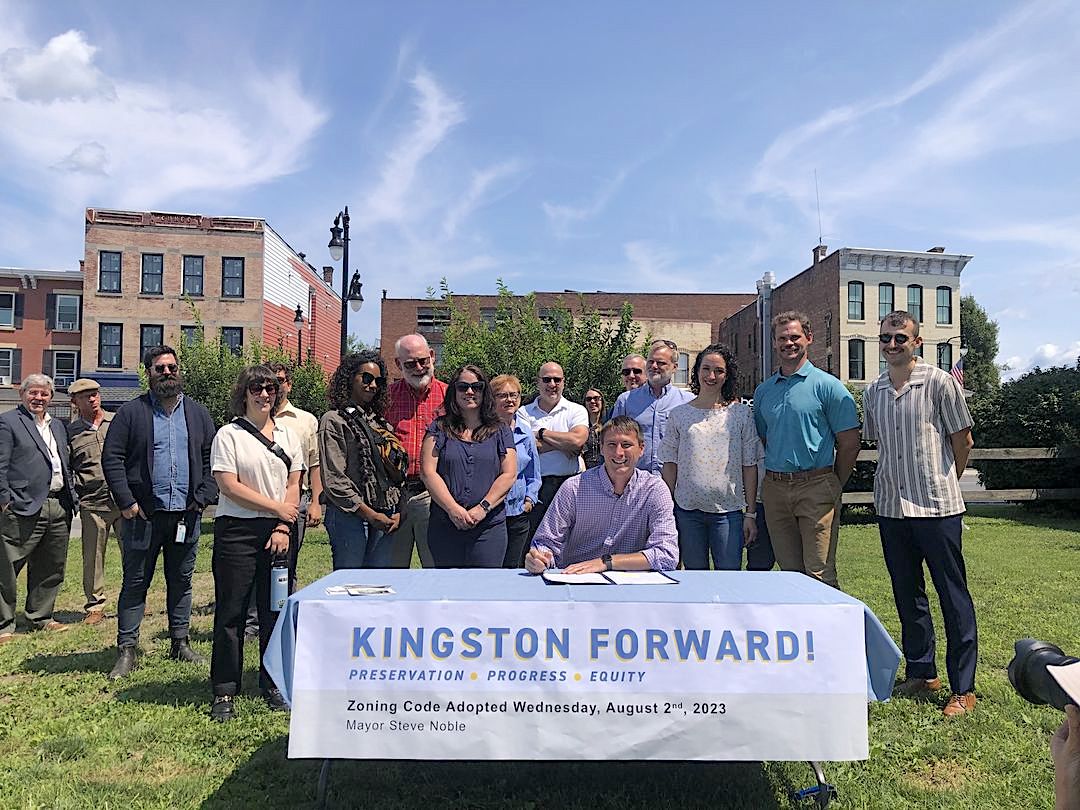At a signing ceremony on Aug. 2, Kingston’s Mayor Steven Noble put the city’s new form-based zoning code into effect. The process of creating the new code took about three years. Kingston’s Common Council had unanimously approved adopting the new code the day before the signing ceremony took place. A form-based zoning code elevates the importance of the form and function of buildings and puts less emphasis on land use.
“I am very proud of the zoning code, which has taken into consideration best practices from other municipalities and ample community feedback,” Noble said. “This new code is truly the vision of our community. It will encourage incremental growth and smart development across the city, while preserving our open spaces. Crucially, this code reform will reduce barriers to the creation of new housing at every level and will help us combat the housing crisis. Ultimately, these changes to the code will make a more equitable city for all.”

The new code creates what is called a “Minor Site Plan Review Process” designed to streamline the review process for development proposals. It legalizes a number of mixed-use development types, legalizes multifamily and infill development and allows townhouses, duplexes and live-work developments throughout the city. The code also eliminates minimum parking requirements.
Noble characterized the new code as the most important land use decision by the Common Council since the previous zoning code was adopted in the 1960s.
“I enthusiastically endorse the vision proposed by the code to right-size parking requirements, improve walkability, preserve open space, encourage infill development that is compatible with Kingston”™s historic urban form, and meet other planning goals outlined in the city”™s comprehensive plan,” Noble said. “Most of all, this rezoning is about reducing barriers to the development of new housing and encouraging the development of different housing types in greater quantity. I thank the Common Council for moving swiftly in considering the proposed zoning code, our wonderful consultants at Dover Kohl, and all the residents who participated in the drafting and adoption process. Crucially, this code reform will reduce barriers to the creation of new housing at every level and will help us combat the housing crisis. Ultimately, these changes to the code will make a more equitable city for all.”
Common Council President Andrea Shaut said the new code represents Kingston stepping away from zoning that was historically based on racial segregation and changing to a community-driven, forward-thinking code.
“The form-based code will assist in affordability, promote walkability, encourage small businesses, and give a true sense of neighborhood to Kingston,” Shaut said.





















